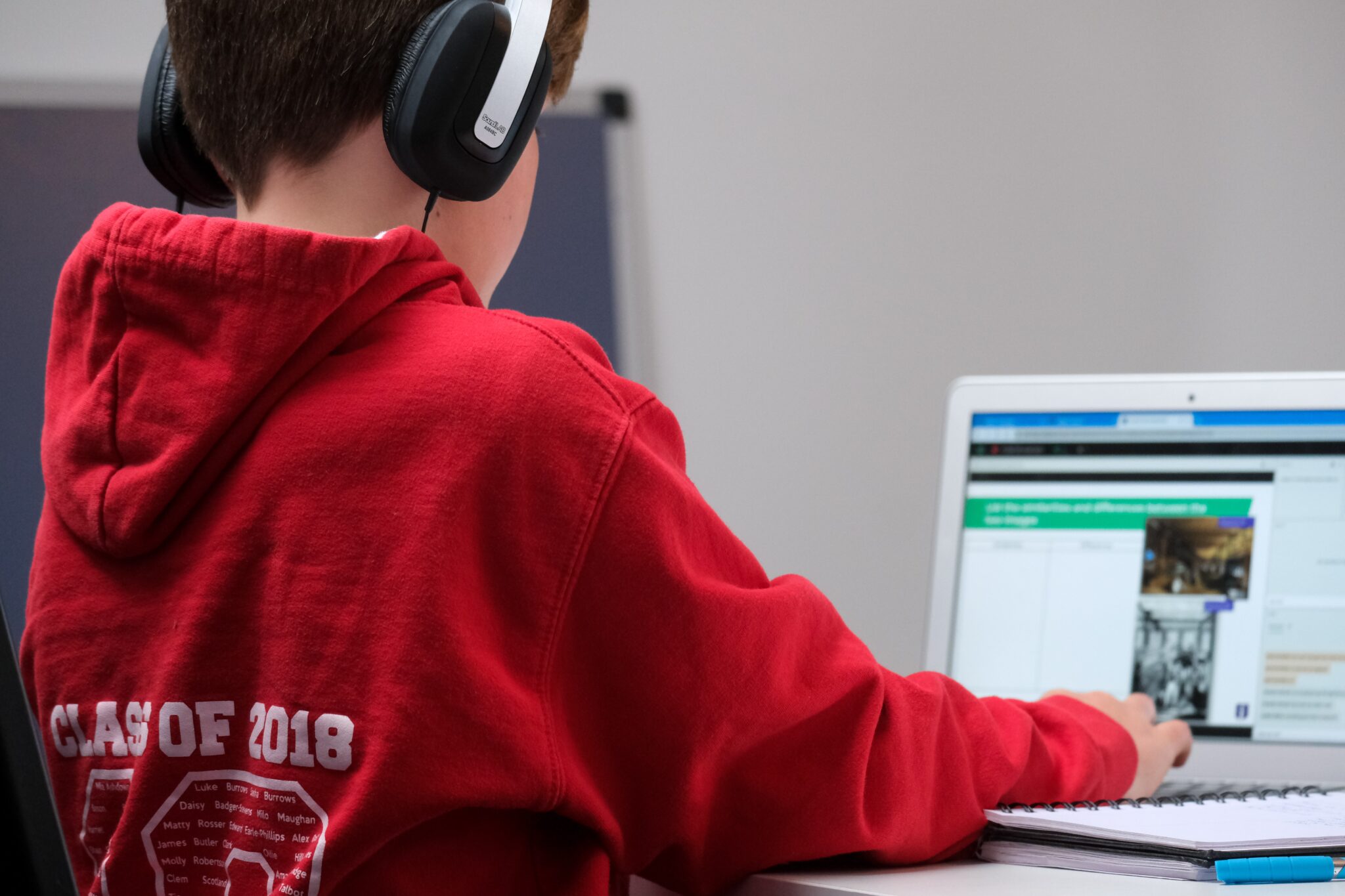Written by Javeria Salman
New Jersey is set to become the first state in the nation to mandate teaching media literacy to students of all ages as a bill with the requirement heads to Gov. Phil Murphy’s desk for a signature.
The bill, which won bipartisan support from the state’s senate and assembly, would require the New Jersey Department of Education to develop learning standards across K-12 in media and information literacy.
Media literacy is often defined as the ability to access, analyze, evaluate, create and communicate information or media. Experts say that many Americans, both young and old, lack the skills required to critically analyze information in a digital world.
A 2019 report from the Stanford History Education Group found that high school students had “difficulty discerning fact from fiction online.”
According to Michelle Ciulla Lipkin, executive director of the nonprofit group National Association for Media Literacy Education, New Jersey’s bill is an important step forward for teaching kids how to think critically about media messages, evaluate news and identify misinformation.
After 40 years of teaching English to high school students in New Jersey, Olga Polites knows how critical media literacy education is in today’s digital age. Polites, who testified before the legislature on the need for media literacy, said the subject goes “hand-in-hand” with a recently passed state civics-education law, that will help students to become well-informed voting citizens, regardless of political party.
“It’s about civic responsibility,” Polites said. “I have a responsibility to a functioning democracy, with students who are well equipped [with] critical thinking skills that they will learn as a result of this.”
In 2016, Polites, the state advocacy leader for nonprofit Media Literacy Now, began to contact her state legislators, advocating for an “information literacy” bill being proposed at the time. One of the few responses she received was a boilerplate email: “Thank you for your concern, we’ll pass this along.” She realized then just how much work needed to be done to get legislators on board.
She saw a golden opportunity to show how crucial the need for media literacy had become in the spread of misinformation during the pandemic and in the aftermath of the 2020 election. Her school’s librarian connected Polites with the New Jersey Association of School Librarians (NJASL), which by then had been lobbying for an information and media literacy law and working on various versions of a bill for more than six years.
The new bill will require school librarians and media specialists to play a key role in instruction. “We’re not saying that teachers are not prepared but teachers are focused on their own content,” said Ewa Dziedzic-Elliott, president of the NJASL. “We are here, ready to add an additional layer of instruction in our classrooms.”
New Jersey’s bill comes on the heels of legislation in Illinois that went into effect this year requiring a media literacy unit for high school students. Illinois joins a handful of other states including Washington, Colorado and Texas that have some form of policy mandating media literacy in schools.
Michael A. Spikes, director of Teach for Chicago Journalism at Northwestern University, is co-founder of the Illinois Media Literacy Coalition, which has built a framework to help educators understand what media literacy is and how to implement it in classrooms.
Spikes explained that “the gift and the curse” of media literacy is that it is applicable to so many areas and subjects. “That makes it difficult to define what’s core, like what’s really, really important for people to know,” he said.
His group’s framework emphasizes the power of media to inform, persuade and influence, as well as the responsibilities of media consumers and creators, among other tenets. It’s also designed to help educators see how they’re already applying these concepts in their existing courses.
“In the best case scenario, a student would be exposed to media literacy practices and concepts throughout the day, in math classes and science classes, not just in English and social sciences,” said Spikes.
What is impressive about New Jersey’s bill is its comprehensiveness, Spikes said. Illinois’ law doesn’t include language about how media literacy should be taught or where it should be taught, whereas New Jersey’s bill spans education from kindergarten through 12th grade, requires the creation of media literacy standards, and includes professional development for teachers.
Where New Jersey and Illinois both fall short, he added, is in providing monetary support for their programs. Washington State has been the leader in that area, Spikes said, having passed legislation in 2019 that set aside funds for media literacy education.
Erin McNeill, president and founder of Media Literacy Now, said other states can look to Illinois, Washington and New Jersey for ideas on how to mandate media literacy education. She added, however, that New Jersey is “especially effective because it’s a bipartisan solution.”
“It just goes to show that this is in fact a nonpartisan issue,” McNeill said. “New Jersey legislators and policymakers have recognized that their students need this education, need these life skills so urgently. It’s their job to set education policy priorities, and they’re doing it.”
This story about media literacy education was produced by The Hechinger Report, a nonprofit, independent news organization focused on inequality and innovation in education.
Javeria Salman is the digital news producer, and she reports and writes the Future of Learning newsletter. She covers K-12 education issues through the lens of innovation and technology, and helps manage social media. Before joining Hechinger in 2019, she worked as a local news reporter in eastern North Carolina. Her work for Hechinger has appeared in Telemundo, The Atlanta-Journal Constitution, The Christian Science Monitor and the Solutions Journalism Network. She attended community college in New Jersey before graduating with a bachelor’s degree from East Carolina University. Follow her on Twitter: @JaveriaSal.





